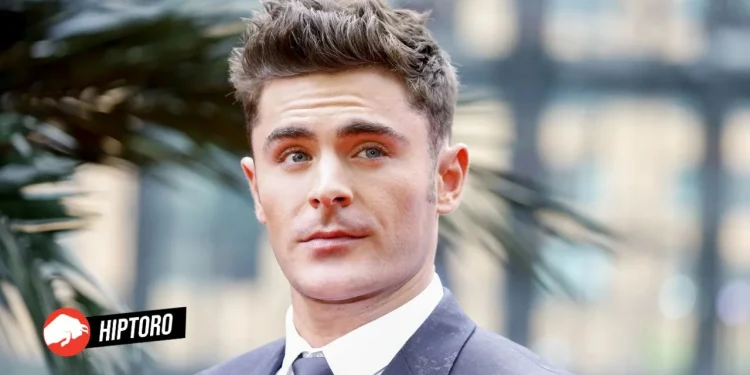Zac Efron has established himself as one of the most versatile and compelling actors of his generation. Rising to fame with his breakout role in Disney’s “High School Musical” series, Efron has since transitioned from teen idol to a serious actor, taking on a wide range of roles that showcase his depth and versatility.
This article explores the top 10 movies of Zac Efron’s career, providing an in-depth analysis of each film, including its plot, character development, thematic elements, and actors’ performance.
Additionally, we will discuss the cultural impact and critical reception of each film, incorporating comparisons to other notable works in Efron’s career when relevant.
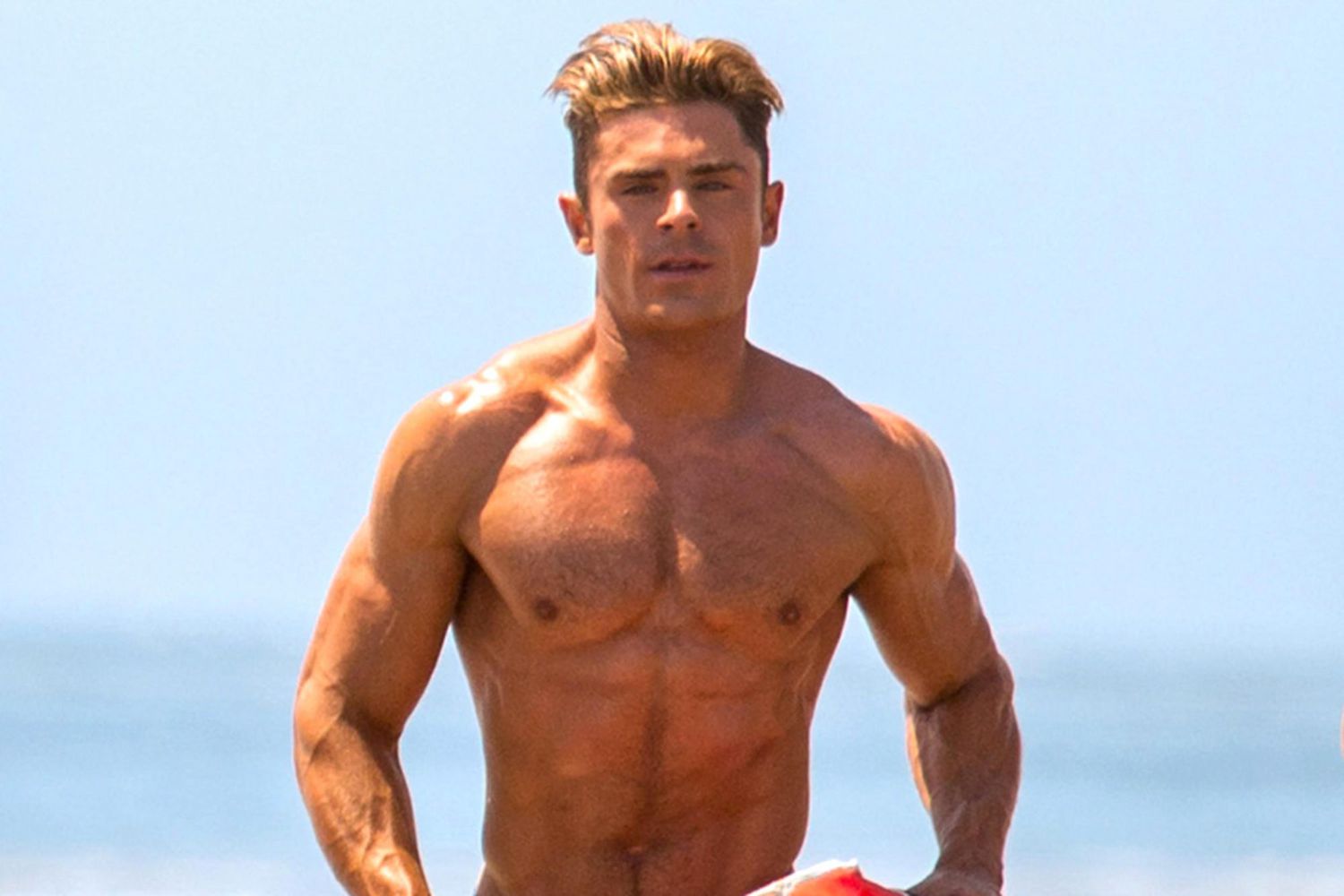
Zac Efron’s evolution as an actor over the years is a testament to his dedication to his craft. From musicals to comedies and dramatic roles, Efron has demonstrated a remarkable ability to adapt and excel in various genres.
This article not only celebrates his achievements but also examines how these movies reflect his growth and versatility as an actor. Through quotes from film critics, snippets from interviews with Efron and his co-stars, and relevant trivia, we will delve into the essence of what makes Zac Efron a significant figure in Hollywood and his influence on contemporary cinema.
1. High School Musical (2006)

“High School Musical,” released in 2006, wasn’t just a movie; it was a cultural milestone that defined a generation. Starring Zac Efron as Troy Bolton, a quintessential high school basketball star faced with the internal conflict of adhering to societal norms or pursuing his newfound love for singing, the film struck a chord with millions around the globe.
Efron’s embodiment of Troy showcased not only his undeniable charm and charisma but also a vulnerability that resonated deeply with audiences, particularly teenagers navigating their formative years.

The narrative of “High School Musical” is a vibrant exploration of youth, identity, and the courage to follow one’s heart despite external pressures. Through Troy’s journey, the film delves into themes of authenticity, the importance of arts in education, and the universal struggle of finding one’s place in the world.
These thematic elements, combined with dynamic character development, allowed viewers to see parts of themselves in the characters on screen. Gabriella Montez, portrayed by Vanessa Hudgens, represents the intelligent, reserved new student grappling with her own passions and fears, further enriching the narrative and its appeal.
Musically, “High School Musical” was a revolution. Songs like “Breaking Free,” “Start of Something New,” and “We’re All in This Together” transcended the film, becoming anthems of empowerment and unity.
The soundtrack’s success is a testament to the movie’s profound impact on popular culture, with melodies and lyrics that continue to inspire sing-alongs and performances across the globe.
Despite a mixed critical reception, with some reviewers pointing out its formulaic plot and simplistic message, the cultural impact of “High School Musical” is undeniable. It sparked a franchise that includes sequels, spin-offs, a series, and stage adaptations, underscoring its enduring popularity. More importantly, it cemented Zac Efron’s status as a household name and a versatile actor capable of crossing genres.
Efron’s portrayal of Troy Bolton did more than entertain; it challenged traditional notions of masculinity and inspired dialogue about following one’s passion, regardless of gender stereotypes. This role showcased Efron’s range as an actor and set the stage for his diverse career choices thereafter.
The legacy of “High School Musical” extends beyond its immediate success. It represents a pivotal moment in teen cinema, one that embraced the complexities of youth and encouraged a generation to dream big. Its message of self-discovery and expression remains relevant, echoing through the halls of time and inspiring new audiences with its heartfelt story and memorable tunes.
In conclusion, “High School Musical” was more than a stepping stone for Zac Efron’s career; it was a phenomenon that shaped the cultural landscape. Through its engaging plot, rich character development, and uplifting thematic elements, it captured the hearts of viewers around the world, leaving a lasting impact on popular culture and the portrayal of youth in media.
2. Hairspray (2007)
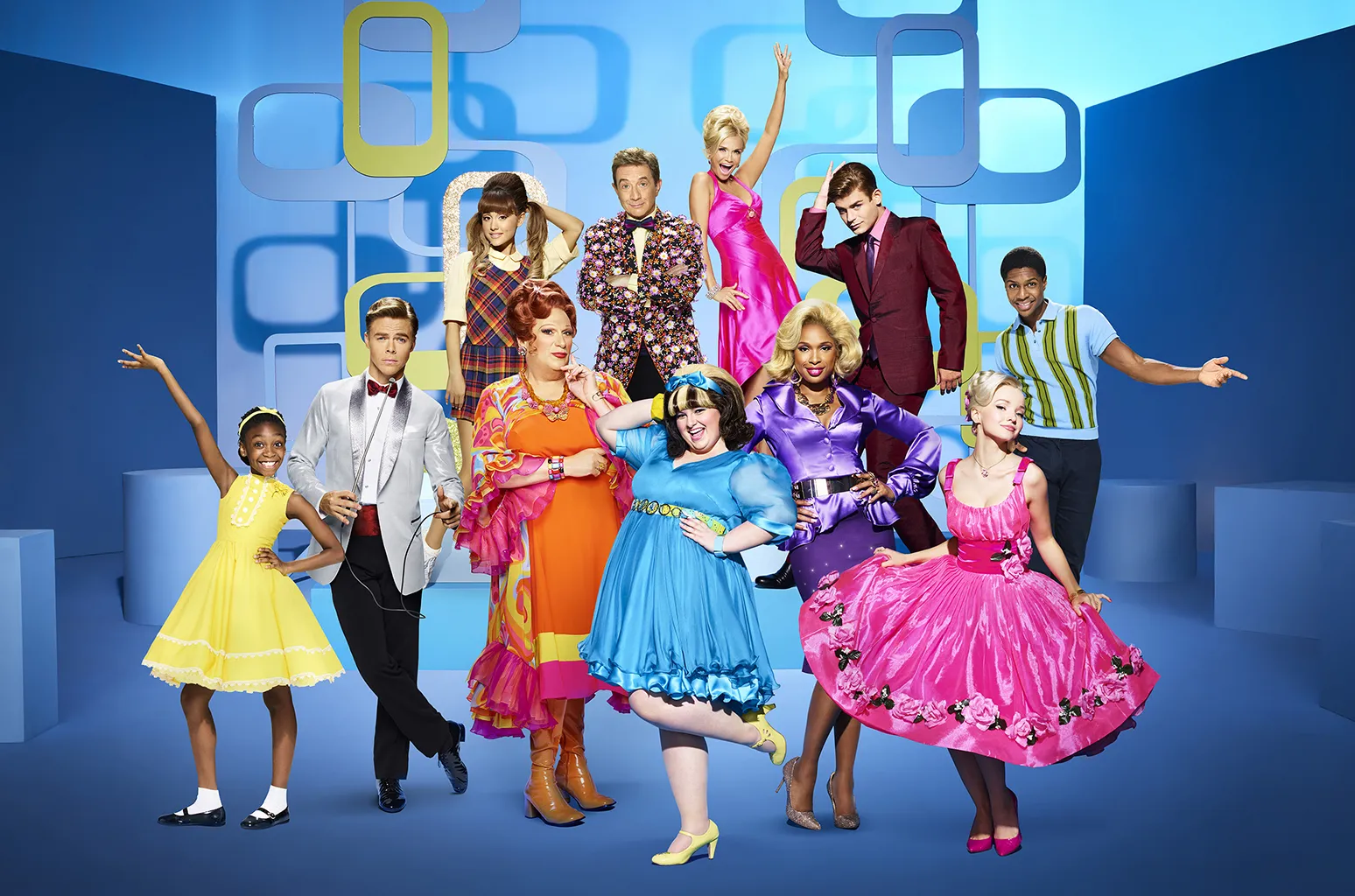
Following the success of “High School Musical,” Zac Efron’s choice to play Link Larkin in the 2007 film adaptation of the Broadway musical “Hairspray” was a bold and strategic move that further solidified his standing in the entertainment industry.
Set against the backdrop of the 1960s, “Hairspray” is a vibrant and energetic musical that addresses serious issues such as racism, segregation, and the fight for equality. Efron’s character, Link Larkin, is a teen heartthrob and a star of the Corny Collins Show who becomes an ally in the fight against racial segregation in the show and, by extension, society.

Efron’s performance in “Hairspray” was a departure from his previous, more youth-centric roles, demanding a greater depth of character and a nuanced understanding of the social issues at the heart of the film.
His portrayal of Link Larkin was not only charming and charismatic but also imbued with a sense of maturity and awareness, reflecting Efron’s growth as an actor. Critics and audiences alike praised Efron for his dynamic performance, noting his seamless transition into more complex and serious subject matter without losing his magnetic screen presence.
The film itself received widespread critical acclaim for its infectious energy, standout performances, and deft handling of themes that remain as relevant today as they were in the 1960s.
“Hairspray” was celebrated for its ability to balance entertainment with important social commentary, a feat achieved through the combined talents of its cast, including Efron, Nikki Blonsky, John Travolta, and Queen Latifah, among others. The musical numbers, in particular, were highlighted as moments of both spectacular showmanship and powerful messages of inclusivity and acceptance.
Efron’s role in “Hairspray” showcased his musical talents, reminding audiences of his roots in musical theatre and his versatility as an actor capable of crossing the divide between musicals and traditional acting roles.
This performance was a significant factor in the film’s success, contributing to its lasting impact as a cultural touchstone that addresses serious societal issues through the lens of a colorful and engaging musical.
Moreover, Efron’s involvement in “Hairspray” helped to broaden his appeal beyond a younger demographic, establishing him as a serious actor with the ability to tackle a range of genres and themes. This role was instrumental in diversifying Efron’s portfolio, proving that he was not just a teen idol but a talented actor with a promising career ahead of him in a variety of cinematic contexts.
In summary, Zac Efron’s performance as Link Larkin in “Hairspray” was a pivotal moment in his career, demonstrating his capacity for handling more mature and complex roles. It reinforced his status as a versatile and talented actor, capable of contributing meaningfully to a film that combines entertainment with significant social commentary and cemented his place in the industry as a performer of depth and charisma.
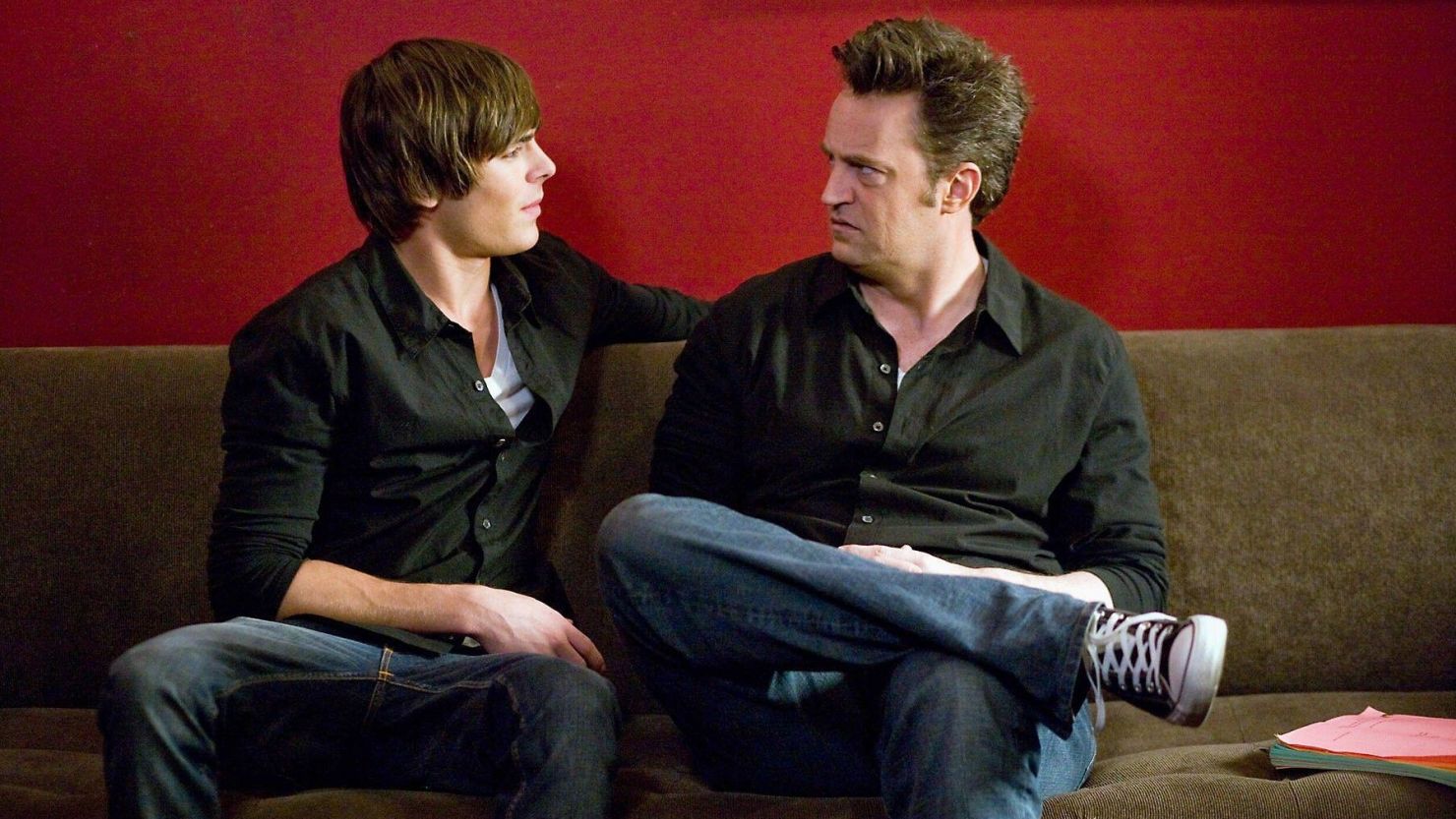
“17 Again,” a film that offers a blend of comedy and heartfelt drama, provided Zac Efron with a unique opportunity to flex his acting muscles in a role that required both comedic timing and emotional depth.
In the film, Efron portrays Mike O’Donnell, a man who, through a twist of fate, experiences a magical transformation that takes him back to his 17-year-old self.
This unexpected journey allows Mike, and by extension, Efron, to navigate the complexities of high school life from the perspective of an adult, presenting a rich tapestry of comedic and poignant moments.

The narrative of “17 Again” taps into universal themes that resonate deeply with its audience. Regret, for instance, is a pivotal element of the story, as Mike is given a second chance to revisit the decisions of his youth and their impact on his future.
Family bonds are also explored, as Mike sees the estrangement from his children and wife from a new, younger perspective, leading to moments of both humor and tenderness. Perhaps most importantly, the film delves into the theme of self-acceptance, encouraging viewers to embrace their true selves and the choices that define their lives.
Efron’s portrayal of Mike O’Donnell was pivotal to the film’s success. His ability to convincingly depict a man trapped in his teenage body allowed the film to explore its themes with authenticity and emotional resonance.
Efron’s performance showcased his range, proving that he could effectively lead a film with a delicate balance of humor and drama. His comedic timing, coupled with the capacity to convey deep emotional undercurrents, contributed significantly to the film’s commercial success and critical acclaim.
Critically, “17 Again” marked a turning point in Zac Efron’s career. It demonstrated his versatility as an actor and his ability to anchor a film as its leading man. The role challenged Efron to step beyond the boundaries of the teen idol image that had catapulted him to fame, allowing him to showcase a more mature aspect of his acting repertoire. Critics and audiences alike praised Efron for his performance, noting his growth as an actor and his ability to navigate the complexities of the role with ease and credibility.
Moreover, “17 Again” highlighted Efron’s skill in comedic roles, a genre that demands precise timing and a natural affinity for humor. His performance in the film not only entertained audiences but also earned him recognition as a talented comedic actor capable of carrying a film’s emotional and humorous weight. This role opened up new avenues for Efron in Hollywood, paving the way for future projects that would further explore his capabilities as a versatile and dynamic actor.
In essence, “17 Again” stands out as a significant milestone in Zac Efron’s career. Through his portrayal of Mike O’Donnell, Efron demonstrated a profound ability to blend comedy with emotional depth, captivating audiences and earning critical praise. The film’s exploration of themes such as regret, family bonds, and self-acceptance, coupled with Efron’s standout performance, underscored his evolution as an actor and his potential for a diverse and impactful career in Hollywood.
4. The Lucky One (2012)

The Lucky One,” based on the novel by Nicholas Sparks, represented a significant departure for Zac Efron from his previous roles, positioning him in a narrative steeped in themes of fate, love, and the arduous journey of healing from trauma.
Efron’s portrayal of Logan Thibault, a stoic and battle-scarred Marine, offered him a canvas to explore a character whose complexity required a profound emotional depth and intensity.
In Logan, we find a man shaped by the horrors of war yet driven by a sense of hope and destiny, embarking on a quest to find the woman from a photograph he believes kept him alive during his service in Iraq.

This role demanded of Efron not just a physical transformation to embody a Marine but also a deep emotional reservoir to portray Logan’s internal battles and the subtle nuances of his journey toward healing and redemption.
Efron’s performance captured the essence of a character grappling with the specters of his past while simultaneously opening himself up to the vulnerability of love and the possibility of new beginnings.
Critics and audiences noted Efron’s commitment to the role, praising his ability to convey the intensity of Logan’s experiences and the gentleness of his interactions with the woman he seeks, played by Taylor Schilling.
“The Lucky One” navigates through its narrative with a focus on the transformative power of love and the serendipitous nature of fate. Efron’s character, Logan, embodies the film’s exploration of these themes, serving as a conduit through which audiences can engage with the story’s emotional core.
His portrayal added layers to the film, enriching the storytelling with a performance that was both nuanced and powerful. This role underscored Efron’s evolution as an actor, showcasing his capacity to delve into more mature and complex characters, far removed from the lighter, more youthful roles that marked the beginning of his career.
While “The Lucky One” garnered mixed reviews, with some critics pointing out the film’s adherence to the typical formulas of a Nicholas Sparks adaptation, the consensus on Efron’s performance was overwhelmingly positive.
His depiction of Logan Thibault stood out as a highlight of the film, earning accolades for bringing depth and authenticity to the role. Efron’s ability to connect with audiences on a deeper emotional level was evident, reinforcing his versatility as an actor and his skill in handling dramatic material.
Efron’s work in “The Lucky One” marked an important milestone in his career, demonstrating his eagerness to challenge himself and expand his acting repertoire.
Through his portrayal of Logan Thibault, Efron not only contributed to a touching story of love and redemption but also took a significant step forward in his journey as an actor. The film, despite its mixed critical reception, served as a testament to Efron’s growth and his potential for taking on diverse and demanding roles in the future.
5. Neighbors (2014)
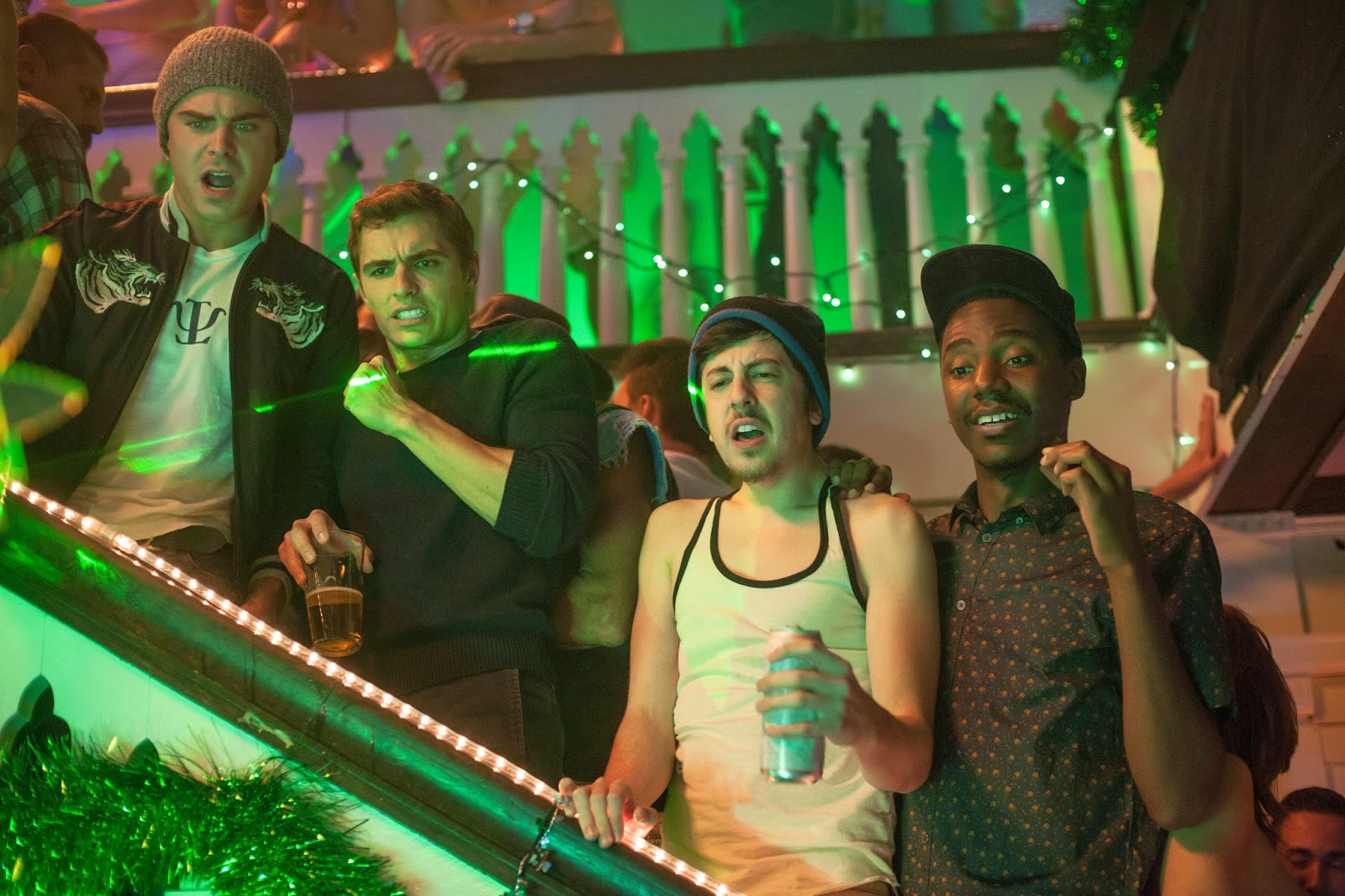
“Neighbors,” released in 2014, signified a pivotal moment in Zac Efron’s career, highlighting a distinct shift from the predominantly wholesome, heartthrob roles that had previously defined his public persona.
In this raucous comedy, Efron took on the role of Teddy Sanders, a charismatic and somewhat menacing fraternity leader whose life revolves around parties, brotherhood, and the pursuit of legendary college memories. This character allowed Efron to tap into a new range of acting skills, blending comedic timing with a darker, more intense edge that showcased his versatility and range as an actor.
Efron’s performance in “Neighbors” adeptly balanced the humor and threat his character represented to the new parents living next door, played by Seth Rogen and Rose Byrne. This dynamic fueled much of the film’s comedy, as well as its exploration of deeper themes such as the transition into adulthood, the responsibilities that come with it, and the often challenging clash between the desire for freedom and the realities of family life.
Efron’s ability to convey Teddy’s charm and his more menacing aspects contributed significantly to the film’s success, resonating with audiences who found humor in the exaggerated yet relatable tension between the neighbors.
Critically, “Neighbors” was lauded not just for its laugh-out-loud humor but also for its incisive social commentary, examining the absurdities and challenges of navigating life’s transitions.
Critics particularly highlighted Zac Efron’s performance, noting his seamless transition from the more dramatic roles of his past to the unabashedly comedic, showcasing a new dimension of his talent. His portrayal of Teddy Sanders was both convincing and multifaceted, proving that Efron could dominate in a comedy just as effectively as he had in musicals and dramas.

This role was instrumental in redefining Efron’s career trajectory, demonstrating his capability to lead and excel in a major comedic film. “Neighbors” not only expanded his acting repertoire but also helped to dismantle the typecast barriers that had confined him, opening the door to a wider variety of roles in future projects.
His performance underscored his comedic skills, his ability to carry a film, and his potential for greater diversity in acting roles.
Furthermore, “Neighbors” underscored Zac Efron’s growth as an actor, showcasing his willingness to embrace complex characters that challenge audience expectations. The film’s blend of humor and a touch of darkness provided a perfect platform for Efron to showcase his ability to navigate between light-heartedness and intensity, cementing his status as a multifaceted and adaptable talent in Hollywood.
Through “Neighbors,” Efron not only entertained audiences but also showcased his capacity for significant artistic growth, establishing himself as an actor capable of handling a wide range of genres with skill and confidence.
6. The Greatest Showman (2017)
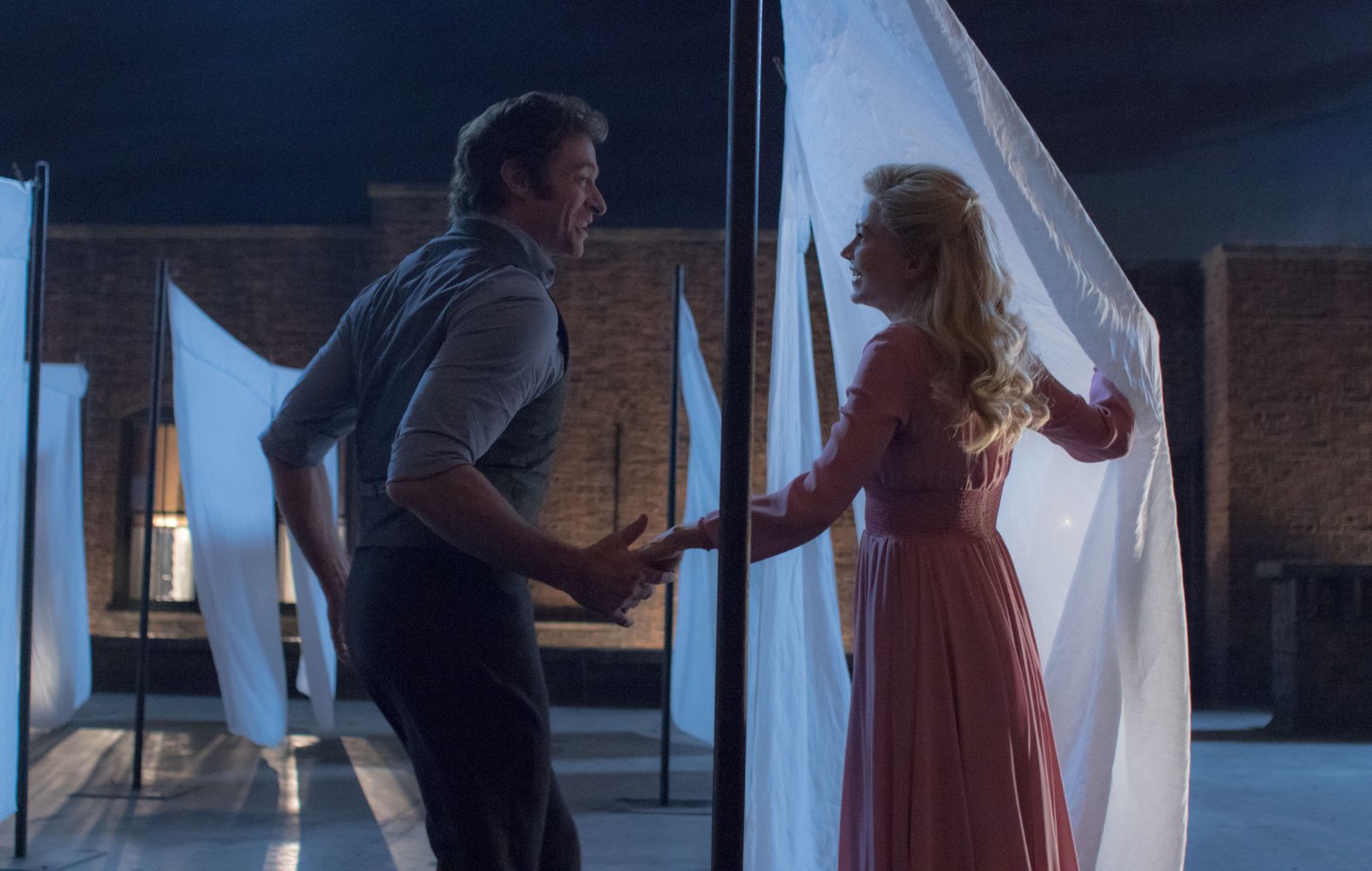
In 2017’s “The Greatest Showman,” Zac Efron made a triumphant return to the musical genre, a realm where he first captured the hearts of audiences worldwide. This time, he stepped into the shoes of Phillip Carlyle, a sophisticated yet disillusioned playwright who finds renewed purpose and passion upon partnering with the visionary showman P.T. Barnum, played by Hugh Jackman.
“The Greatest Showman” is a cinematic celebration of the birth of show business and the spectacle of dreams, featuring breathtaking musical sequences that explore themes of acceptance, inclusivity, and the pursuit of one’s dreams against all odds.
Efron’s role as Carlyle was pivotal, representing the societal bridge between Barnum’s world of wonder and the upper echelons of New York society in the 1800s. His character’s journey from skepticism to wholehearted belief in Barnum’s dream—and in the inherent value of every individual—mirrors the film’s message of acceptance and the celebration of diversity.
Efron’s performance, infused with charm, depth, and vulnerability, showcases his evolution as an actor and a vocalist, proving his ability to anchor significant musical numbers alongside heavyweights like Hugh Jackman. His portrayal was a blend of the dramatic and the musical, highlighting his versatile talent and reinforcing his status as a major musical theatre force.

While “The Greatest Showman” received a polarized reception from critics, who were divided on its historical accuracy
and the glossing over of P.T. Barnum’s controversial legacy, its commercial success and the enduring popularity of its soundtrack speak volumes about its impact on audiences. The film struck a chord with viewers around the globe, inspiring them with its messages of perseverance, self-acceptance, and the beauty of embracing one’s uniqueness. Songs like “This is Me” became anthems for self-empowerment and inclusivity, further testament to the film’s resonant themes.
Critically, the mixed reviews often highlighted the film’s lavish production values, catchy songs, and energetic performances, with particular praise directed at its cast.
Zac Efron’s performance was singled out for bringing a heartfelt sincerity to the ensemble, demonstrating his significant contribution to the film’s emotional and musical core. His dynamic presence, both in solo and collaborative numbers, showcased his extensive musical talent and added a crucial layer of depth to the film’s narrative.
Efron’s ability to stand out yet seamlessly integrate within an ensemble cast was particularly noteworthy in “The Greatest Showman.”
His chemistry with the cast, especially during his duet “Rewrite the Stars” with Zendaya, who plays trapeze artist Anne Wheeler, was a highlight, showcasing his ability to convey complex emotions through song and dance.
This performance underscored Efron’s range, not just as a singer and dancer but as an actor capable of delivering powerful performances in a musical context.
“The Greatest Showman” served as a significant milestone in Zac Efron’s career, reinforcing his musical theatre credentials and highlighting his growth as an artist.
His role in the film not only showcased his talent in a genre that first brought him to prominence but also demonstrated his versatility and ability to contribute meaningfully to a project’s overall success.
Through Phillip Carlyle, Efron explored themes of acceptance and ambition, embodying the film’s spirit and contributing to its lasting legacy as a beloved musical spectacle.
In summary, Zac Efron’s performance in “The Greatest Showman” exemplified his musical prowess and his capacity for deep, emotionally resonant acting within the framework of a blockbuster musical.
The film, with its emphasis on the importance of dreaming big and embracing one’s uniqueness, provided the perfect platform for Efron to showcase his talents, further cementing his position as a dynamic and multifaceted actor in Hollywood.
7. Baywatch (2017)

In the 2017 action-comedy reboot of “Baywatch,” Zac Efron ventured into new territory, embodying the character of Matt Brody, a brash and talented former Olympic swimmer with a tarnished reputation who seeks redemption by joining the elite team of lifeguards led by Dwayne “The Rock” Johnson’s Mitch Buchannon.
The film aimed to capture the essence of the beloved 1990s television series, infusing it with modern humor, thrilling action sequences, and a touch of nostalgia for fans of the original show.

Efron’s role as Matt Brody was a significant departure from the more wholesome characters he had previously portrayed, requiring an intense physical transformation that became a major talking point in the lead-up to the film’s release.
Efron underwent rigorous training and adopted a strict diet to achieve the chiseled physique necessary to convincingly play a world-class swimmer, demonstrating his commitment to authenticity in his roles.
This dedication to physical preparation not only showcased his professionalism but also his willingness to push his limits to bring a character to life on screen.
Despite the film’s mixed to negative critical reception, with some reviewers pointing out its struggle to balance raunchy comedy with action-packed lifeguard heroics, Efron’s performance emerged as a notable highlight.
Critics and audiences alike praised his comedic timing and the physicality he brought to the role, underscoring his versatility as an actor. Efron’s ability to navigate the film’s comedic elements while also engaging in its high-octane action scenes contributed to the movie’s entertainment value, even if it fell short of some expectations.
“Baywatch” allowed Efron to explore a new dimension of his acting range, combining physical comedy with action in a way that he hadn’t previously tackled.
His portrayal of Matt Brody added depth to the film, offering moments of humor and vulnerability that stood out amid the broader comedic and action-packed scenes.
This role reflected Efron’s openness to challenging himself and exploring diverse characters, reinforcing his status as a dynamic actor capable of adapting to a wide range of genres.
Although “Baywatch” did not achieve the critical acclaim that some of Efron’s other projects have garnered, it served as an important milestone in his career, illustrating his capacity for growth and his unwavering commitment to his craft.
By taking on the role of Matt Brody, Efron continued to expand his repertoire, pushing beyond his comfort zone and embracing the complexities of combining comedy with action.
This willingness to take risks and tackle diverse roles has become a hallmark of Efron’s career, contributing to his ongoing evolution as an actor and his ability to captivate audiences with his performances.
8. Extremely Wicked, Shockingly Evil and Vile (2019)
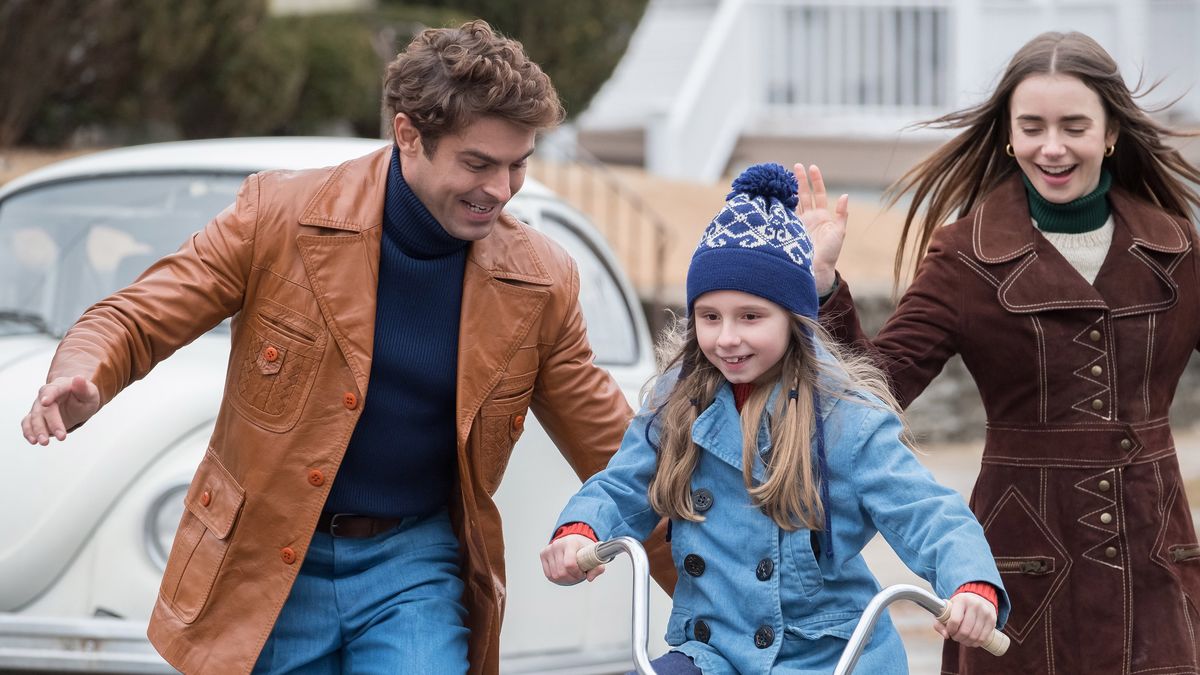
In “Extremely Wicked, Shockingly Evil and Vile,” Zac Efron took on one of the most challenging roles of his career, stepping into the shoes of Ted Bundy, one of America’s most infamous serial killers.
This marked a significant departure from the roles that had previously defined Efron’s career, requiring a deep and unsettling dive into the mind of a man known for his heinous crimes as much as for his deceptive charm and intelligence.
Directed by Joe Berlinger, the film offers a unique perspective on Bundy’s life, largely through the lens of his long-term girlfriend, Elizabeth Kloepfer, played by Lily Collins, who struggled to reconcile her love for Bundy with the reality of his monstrous acts.
Efron’s portrayal of Bundy was a tightrope walk between showcasing the killer’s charismatic public persona, which fooled many around him, and the chilling glimpses into the mind of a man capable of unspeakable evil.
Critics and audiences alike commended Efron for his nuanced performance, noting how he managed to capture the complexity of Bundy’s character without glorifying or trivializing the gravity of his crimes.
This role demanded a level of emotional and psychological depth from Efron that had not been seen in his previous work, demonstrating his range and dedication to challenging himself as an actor.

The film navigates the difficult task of portraying Bundy’s life without sensationalizing his crimes, focusing instead on the manipulative tactics he used to deceive those around him, including the legal system and the media.
Efron’s performance brings to light the dangerous allure of Bundy, highlighting the disparity between the public image of the charismatic law student and the cold, calculating murderer behind the facade.
This duality is central to the film’s exploration of how Bundy was able to evade suspicion for so long, with Efron conveying the unsettling reality that evil can be hidden behind a charming smile and persuasive rhetoric.
While “Extremely Wicked, Shockingly Evil, and Vile” received mixed reviews, with some critics questioning the film’s approach to its sensitive subject matter, the consensus on Efron’s portrayal of Bundy was overwhelmingly positive.
His transformation into the character was seen as a bold and successful effort to diversify his acting portfolio, moving beyond the roles that had made him a household name. This performance marked a pivotal moment in Efron’s career, showcasing his capability to delve into darker, more complex characters and altering audience perceptions of him as an actor.
Efron’s role in the film not only expanded his artistic range but also contributed to a broader conversation about the nature of evil and the ways in which society grapples with understanding and representing figures like Bundy.
By taking on this challenging role, Efron demonstrated a willingness to push the boundaries of his craft, exploring the depths of human psychology and the complexities of portraying a real-life figure whose actions left an indelible mark on American history.
This daring choice underscored Efron’s growth as an actor and his commitment to exploring the full spectrum of human experience, even at its most dark and disturbing.
9. “The Paperboy (2012)
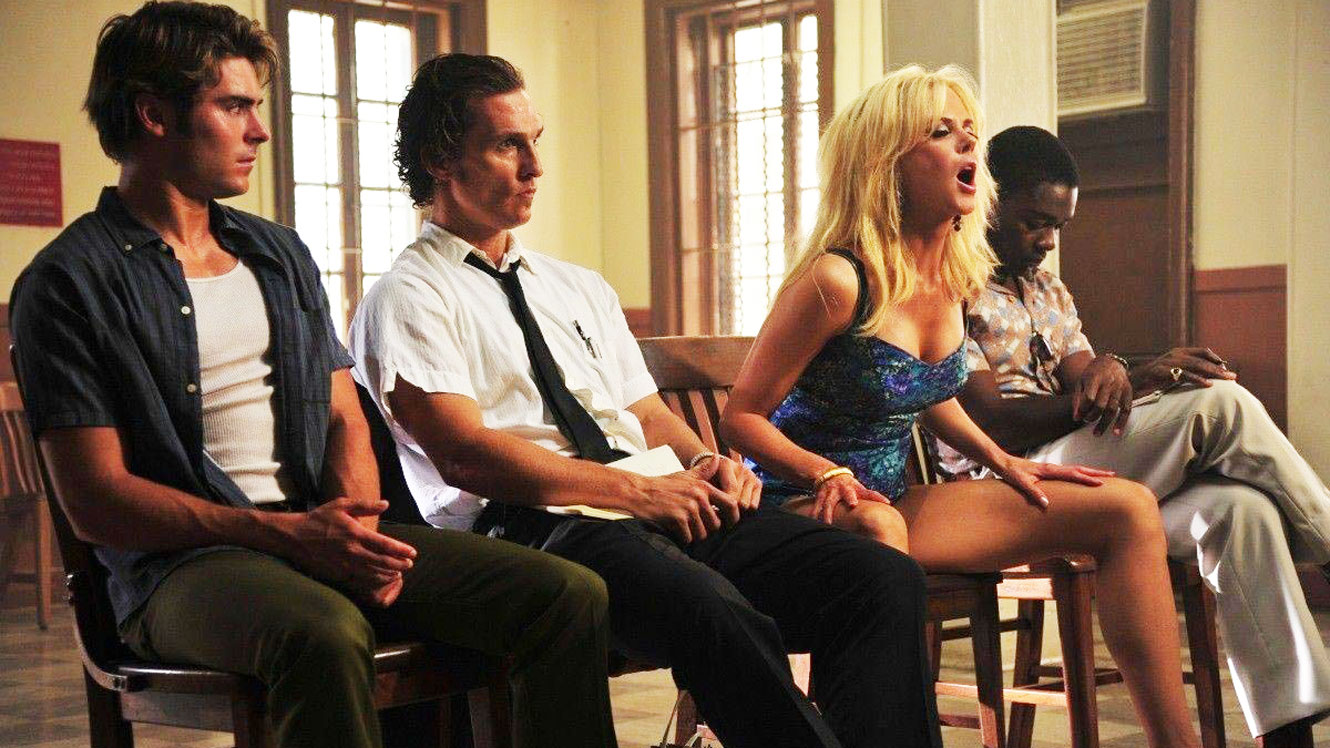
“The Paperboy,” directed by Lee Daniels and set in the sultry backdrop of the 1960s South, offered Zac Efron an opportunity to dive into a character steeped in complexity and emotional turbulence.
Efron’s portrayal of Jack Jansen, a young man ensnared in a dangerous investigation involving a death row inmate, showcased his ability to navigate intense themes of justice, love, and the pursuit of truth amidst a corrupt and prejudiced society.
The role of Jack, marked by an undercurrent of innocence and a desperate longing for something beyond his reach, allowed Efron to explore new depths of his craft, delivering a performance that was both raw and compelling.

Efron’s approach to the character brings out Jack’s naivety, his vulnerability, and his gradual loss of innocence as the story unfolds. This role required Efron to embody the complexities of a young man coming of age in a tumultuous era, dealing with personal desires, familial expectations, and the harsh realities of the world around him.
Critics and audiences noted the depth Efron brought to Jack, highlighting his ability to convey a wide range of emotions and make audiences empathize with his character’s journey. His performance was a delicate balance of strength and fragility, capturing the essence of a soul in turmoil.
“The Paperboy” delves into dark and controversial themes, challenging its characters and viewers alike to confront uncomfortable truths. Efron’s role in this narrative landscape was critical; he served as an anchor through which the audience could experience the story’s emotional and moral complexities.
Despite the film’s mixed reviews, with some critics pointing out its tonal inconsistencies and graphic nature, Efron’s portrayal of Jack Jansen stood out as a testament to his evolving range as an actor.
His performance was singled out for praise, with many acknowledging his success in tackling such a challenging and unconventional role.
The film’s exploration of themes such as justice, the corruptibility of truth, and the destructive nature of love offered Efron a canvas to showcase his versatility and commitment to his craft.
“The Paperboy” highlighted his willingness to delve into characters that require a deep emotional and psychological investment, demonstrating his growth as an actor unafraid to explore the darker and more complex aspects of human nature.
Zac Efron’s work in “The Paperboy” further solidified his reputation as a multifaceted actor capable of transcending his initial teen idol image. Through his portrayal of Jack Jansen, Efron proved his ability to connect with characters on a profound level, offering audiences a glimpse into his expansive potential.
This role reaffirmed Efron’s commitment to taking on diverse and challenging projects, showcasing his dedication to pushing the boundaries of his acting career and exploring the vast spectrum of human experience through his performances.
10. Me and Orson Welles (2008)
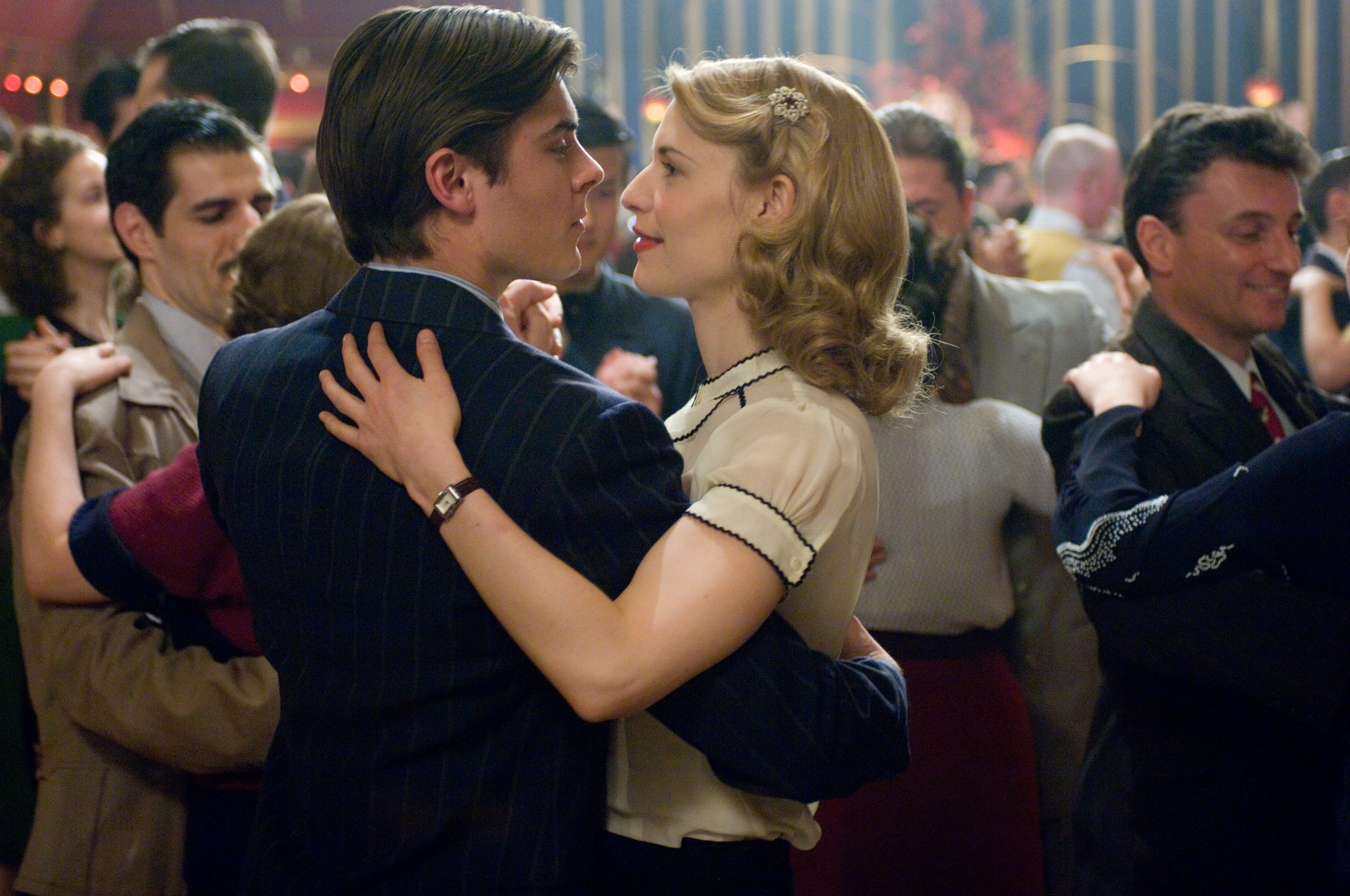
In “Me and Orson Welles,” a film directed by Richard Linklater and set in the vibrant and tumultuous world of 1937 New York theater, Zac Efron steps into the shoes of Richard Samuels, a high school student who stumbles into the opportunity of a lifetime: a role in Orson Welles’ groundbreaking production of “Julius Caesar” at the Mercury Theatre. This role offered Efron a unique platform to delve into the historical and artistic richness of the period, portraying a character caught in the whirlwind of creative genius and the complexities of theater life.

Efron’s portrayal of Richard Samuels is a masterful depiction of youthful ambition and the wide-eyed innocence of a young man navigating the challenges and exhilarations of working with one of the most formidable figures in theater history.
Efron brings a palpable enthusiasm and charm to the role, perfectly embodying Richard’s awe and excitement, as well as his naivety, as he becomes entangled in the personal and professional dynamics of the theater troupe.
His performance captures the essence of a fledgling actor’s journey of discovery, both of himself and the art form he is beginning to love.
Critically, “Me and Orson Welles” received positive accolades for its engaging storytelling, period authenticity, and the dynamic portrayal of Orson Welles by Christian McKay.
However, it was Efron’s performance that was particularly highlighted, with critics acknowledging the depth and nuance he brought to the role of Richard.
Through this character, Efron demonstrated a significant range and the ability to convey complex emotions, from the exhilaration of first-time theatrical experiences to the disillusionment and growth that come with them.
The film not only offered audiences a glimpse behind the curtain of a pivotal moment in theatrical history but also underscored Zac Efron’s versatility as an actor. His performance in “Me and Orson Welles” showed that he could seamlessly transition from teen roles to more substantial, character-driven projects.
By holding his own against an ensemble cast of seasoned actors and portraying a character with genuine depth and vulnerability, Efron dispelled any doubts about his acting credentials and marked a pivotal moment in his career trajectory.
“Me and Orson Welles” was a critical step in Zac Efron’s evolution as an actor, allowing him to explore new artistic territories and demonstrating his commitment to challenging himself with diverse and complex roles.
His portrayal of Richard Samuels showcased his capacity for dramatic performance and his ability to engage with historical and literary material, contributing significantly to his growth as a performer.
Through this film, Efron not only paid homage to the legacy of Orson Welles and the magic of theater but also solidified his place as a versatile and talented actor capable of transcending his initial image as a teen idol
Zac Efron’s career trajectory is a remarkable journey of growth and transformation. From his early days as a teen idol in “High School Musical” to taking on complex roles in films like “Extremely Wicked, Shockingly Evil, and Vile,” Efron has continually challenged himself and expanded his range as an actor. Each film discussed above reflects a different facet of his versatility, demonstrating his ability to adapt to various genres and character types.
Efron’s evolution as an actor is not only a testament to his talent but also to his dedication to his craft. He has proven that he is not afraid to step out of his comfort zone and tackle roles that require a deep emotional and physical commitment. This willingness to explore different aspects of the human experience has earned him critical acclaim and a loyal fan base.
Reflection on Zac Efron’s Legacy in Hollywood
Zac Efron’s impact on Hollywood extends beyond his filmography. He has influenced contemporary cinema through his choice of roles, challenging stereotypes, and pushing for more nuanced portrayals of male characters. Efron’s legacy is one of versatility, dedication, and an unwavering commitment to growth as an artist.
As we reflect on Efron’s career, it is clear that his influence will be felt for years to come. Through his performances, he has captured the hearts of audiences worldwide and has contributed significantly to the film industry. Zac Efron’s journey in Hollywood is a powerful reminder of the importance of evolving as an artist and the impact one individual can have on shaping the landscape of cinema.


